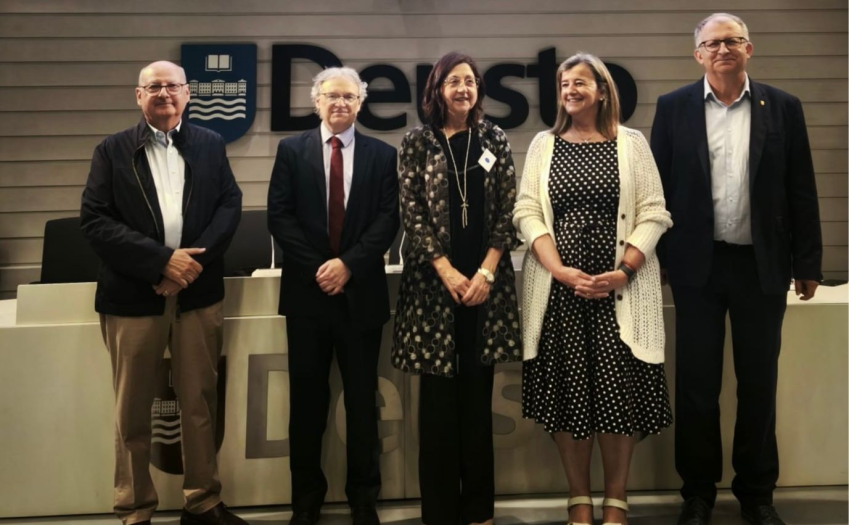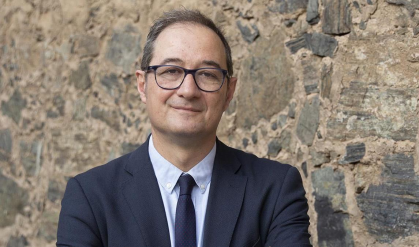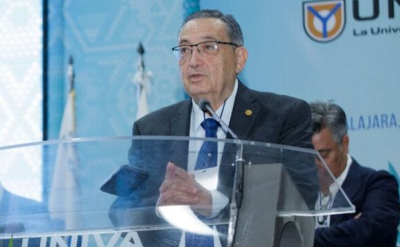News

REDIF Symposium - “When there is harm: who suffers?”
The symposium entitled “When there is harm: who suffers?” was held in Bilbao on June 26 and 27 at the Auditorium of the University of Deusto, as part of the celebration of the 30th anniversary of the creation of the European Network of Family Institutes (REDIF). The institutes of Lyon, Salamanca, Milan, Louvain-la-Neuve, and Madrid founded REDIF in Lyon (France) on December 16, 1995, as a sectoral group of the International Federation of Catholic Universities (FIUC). The institutes of Fribourg, Barcelona, Bilbao, and Lille subsequently joined.
Currently, the members of REDIF, integrated as an interdisciplinary and international research group of CIRAD (FIUC), are:
• Centro di Ateno Studi e Ricerche sulla Famiglia- CSRF. Università Cattolica del Sacro Cuore. Milan
• Institut Sciences de la Famille- ISF. Université Catholique de Lyon
• Instituto Universitario de la Familia. Universidad Pontificia Comillas. Madrid
• Couple and Family Research Group. FPCEE Blanquerna. Ramon Llull University. Barcelona.
• Deusto FamilyPsych. University of Deusto. Bilbao
The member institutes of REDIF share their affiliation with an IFCU university, a common object of study and teaching, namely the family, a university status that generates a scientific, rigorous, and critical approach to family reality, and a multidisciplinary approach.
The symposium was opened by the Vice-Rector of the University of Deusto, Javier Arellano, the Secretary General of the FIUC, François Mabille, the Regional Minister for Employment, Social Cohesion and Equality of Bizkaia, Teresa Laespada, the Vice-President of REDIF, Carles Pérez Testor, and the organizer of the symposium, Ana Martínez Pampliega, IP of Deusto FamilyPsych.
The Symposium began with the opening lecture: Danger, adaptation and paradox: trauma throughout development, given by Carlos Pitillas from the Comillas University in Madrid, followed by the First panel: Vulnerability in early childhood, with presentations by Ana Berástegui, Director of the Family Institute at the Pontifical University of Comillas, with “Vulnerability in early relationships and the resilience of attachment,” and Marta Gomà, researcher at the GRPF of the FPCEE Blanquerna Ramon Llull University, with “The impact of perinatal depression and anxiety, and its prevention in highly vulnerable contexts.”
The following day, the Second Round Table: Distress, Fragility, and Adolescence was held, with presentations by Bittor Arnaiz and Josu Goikoetxea, authors of the documentary “Legal Abuse in the 21st Century,” and Mónica Taibo de los Ríos, who presented “Deregulation in Schools.”
The third panel: Legal. Minors and custody in contexts of gender violence, featured presentations by Milagros del Campo Cámara on “Forensic psychological assessment of civil proceedings in contexts” and José Manuel Muñoz on “Risk assessment for the exercise of paternal parental responsibility in gender violence in couples”.
The fourth panel, on the protection of children and adolescents, featured Myriam Bustamante and Rosa Lizarraga with “A group experience in the transition to adulthood: from appearing to being,” and Laura Merino and Txemi Santamaría from Deusto FamilyPsich with “Safe environments for child protection,” which closed the symposium.
With more than 180 participants, the conference sparked discussions and reflections among the attendees, most of whom were professionals, which enriched the high level of the presentations.
Ana Martínez Pampliega and Carles Pérez Testor closed the symposium.














No comment
Log in to post comment. Log in.